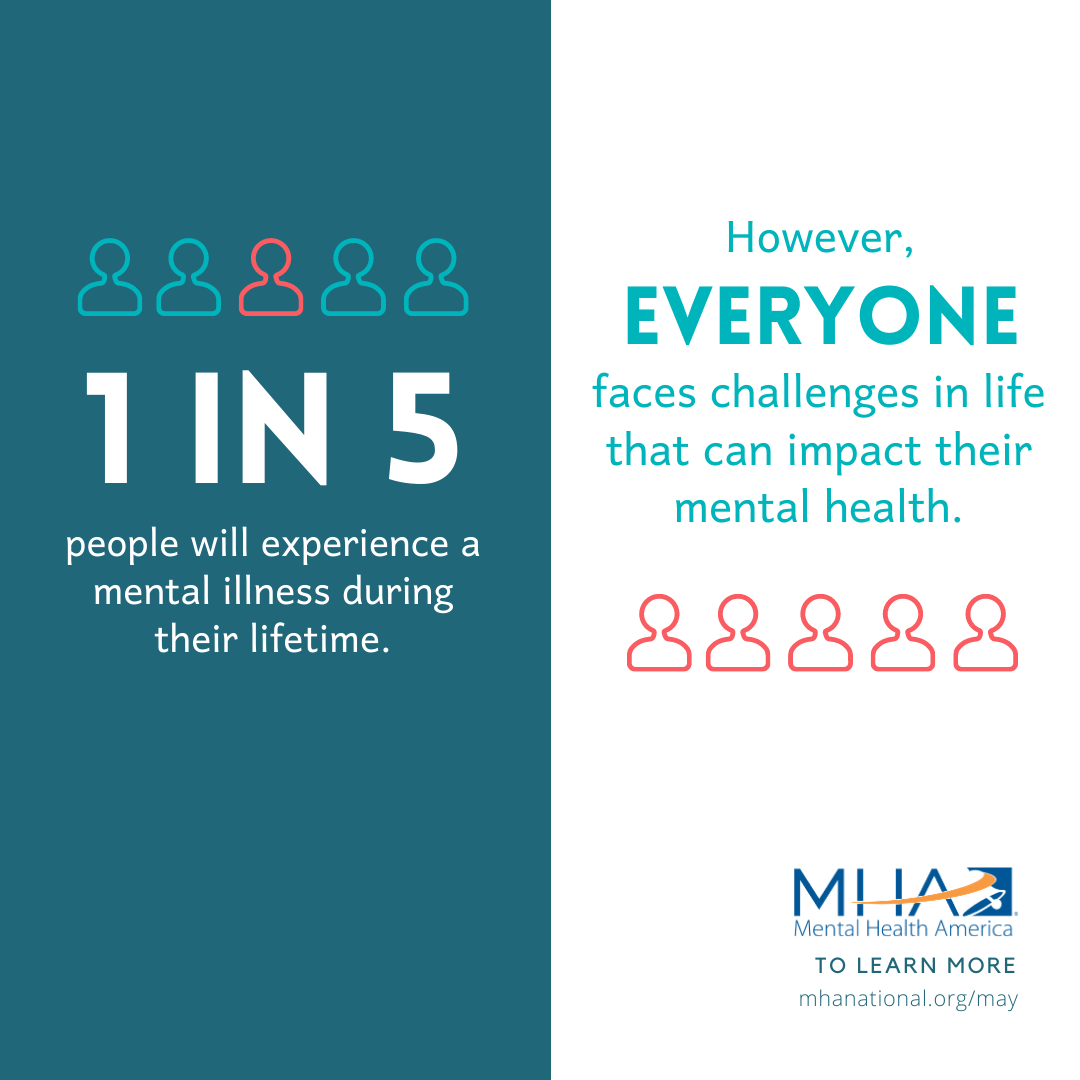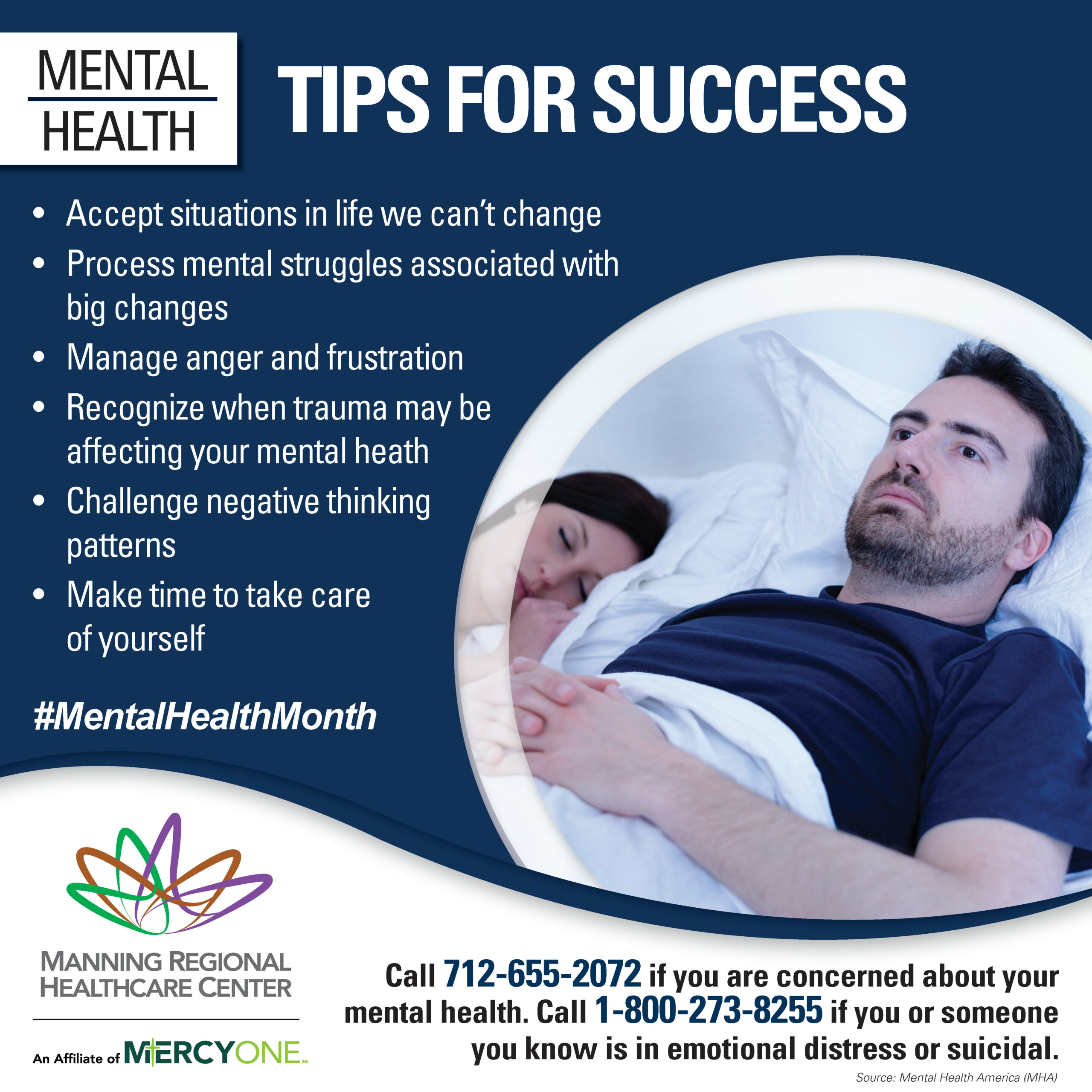Distinct mental health differences are evident when comparing rural and urban residents. While mental illnesses have a similar prevalence in both environments, the circumstances and access to treatment look different. According to The National Rural Health Association (NRHA), rural residents face more obstacles in obtaining behavioral health services.
Based off these findings as well as the CHNA results, Manning Regional Healthcare Center is spreading awareness of the challenges of receiving mental health access in rural areas.
“We know that mental health is one of the main concerns of our rural communities based off our latest Community Health Needs Assessment (CHNA),” shared MRHC Education Coordinator, Julie Hodne, RN. “Based off those results we will prioritize addressing mental health concerns over the next three years.”
Studies have also shown that the risk of suicide is higher in rural areas, making it that much more vital that individuals have access to and seek out help. The Rural Health Information Hub states that the suicide rate is near twice as great in the most rural areas of the U.S. compared to the most urban areas.
“Everyone deserves access to quality mental health care,” said Senior Life Solutions Program Director, Janet Brus, RN. “Helping as many people as possible get the help and treatment they need is what we work towards every day.”
Finding a solution starts with identifying the problem. The Substance Abuse and Mental Health Services Administration (SAMHSA) highlights the following barriers to receiving mental health care in rural areas:
- Lack of privacy
- Lack of culturally appropriate treatment – Accommodates clients’ beliefs and practices, preferred languages, individual and family histories, differences in symptoms, and preferred treatment approaches.
- Lack of services – Even if rural residents desire mental health treatment, they commonly have few services and providers in their areas. They may have less access than urban residents to evidence-based practices (EBPs).
- Lack of practitioners – Rural areas have few behavioral health practitioners, especially those qualified to provide specialty treatment or EBPs. More than 75% of all U.S. counties are mental health shortage areas, and half of all U.S. counties have no mental health professionals.
- Evidence-based practices – Some research shows that behavioral health facilities in rural areas are more likely than their urban counterparts to be independently operated and less likely to collaborate with a university to train providers on EBPs. At the same time, most studies that support EBPs are not conducted in rural areas or with rural populations.
Solutions
Advances such as telehealth have helped increase access to mental health care for rural Americans, making treatment more obtainable. Along with these technological improvements, another effort we can all partake in to help improve access to mental health is simply talking about it. Talking about mental health can open the door for people to feel more comfortable and less afraid to seek help.
According to the American Psychiatric Association, research shows that knowing or having contact with someone with mental illness is one of the best ways to also reduce stigma. Individuals speaking out and sharing their stories can have a positive impact. When we know someone with mental illness, it becomes less scary and more real and relatable.
If you need more mental health information, education, or would like to discuss support, please contact your primary care physician at (712) 655-2072. For those 65 and older, call Senior Life Solutions at (712) 655-8262. Or call the Manning Recovery Center at (712) 655-2300 and talk to a professional. To learn more about mental health and available resources visit mhanational.org/may. To learn more about how you can become an advocate this Mental Health Awareness Month and join the national campaign, visit www.nami.org.
###

